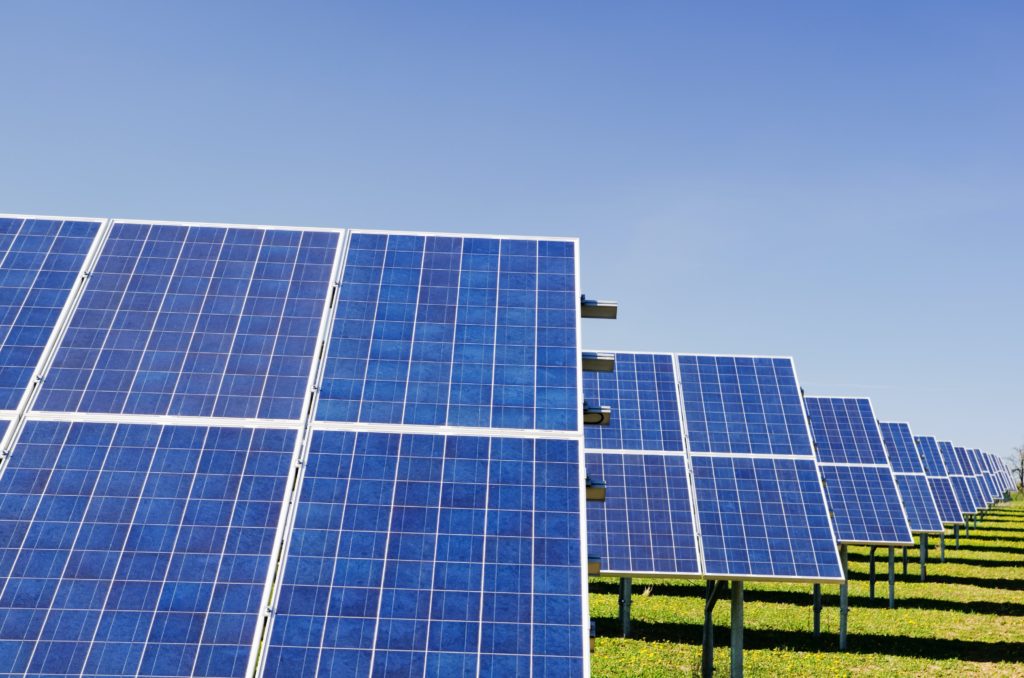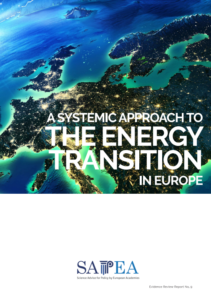The SAPEA report “A systemic approach to the energy transition in Europe” suggests several possible pathways towards a carbon-neutral future. However, the SAPEA evidence review report concludes that achieving carbon-neutrality by 2050 will require urgent action.

The SAPEA report “A systemic approach to the energy transition in Europe” points to six main themes to be addressed.
Coinciding with the report, the corresponding Scientific Opinion of the European Commission’s Group of Chief Scientific Advisors has also been published.
The report points to six main themes to be addressed:
Technological diversity: Huge global investments in technology will be needed in the coming decades. But in general it is often difficult to predict the winning technologies of the future. So, rather than searching for a single silver bullet, Europe must develop and deploy a broad range of technologies while maintaining common, EU-wide goals. This is important not only to create a dynamic and flexible energy system, but also because different countries in Europe have different structures and needs.
Managing deep complexity: We must find new ways to balance supply and demand in a complex energy system that includes variable sources such as solar and wind power. Electrification, new infrastructure, energy efficiency, demand management, and innovative uses of data can all help to manage this complexity. For hard-to-decarbonise sectors, such as long distance transport and heavy industry, there are alternatives to direct electrification, such as green hydrogen fuels.
Governance and regulation: We need a strong carbon pricing mechanism as part of a mixture of regulatory measures and incentives. The existing European Emissions Trading System should be extended to all relevant sectors, including transport and heating/cooling, and political leaders should commit to very high carbon prices by the middle of the century, reflecting the full environmental impact of greenhouse gases. Revenues raised in this way should be used to support a fair transition, to ensure that no-one is left behind.
Behaviour and participation: Facilitating public behaviour and action at multiple levels is just as important as developing new technologies. In the energy system of the future, actions at individual, household, local and regional levels will play a central role in supporting energy generation and shifting patterns of use.
 Global leadership: The EU is well placed to take a global lead in reducing emissions in a way that is economically efficient and socially equitable, while maintaining competitiveness. Europe must strengthen its diplomatic efforts to ensure that the Paris Agreement is followed by everyone, and to account for the emissions which are generated by goods imported into Europe. Reciprocal commitments from other countries will be more effective than overachieving in Europe alone.
Global leadership: The EU is well placed to take a global lead in reducing emissions in a way that is economically efficient and socially equitable, while maintaining competitiveness. Europe must strengthen its diplomatic efforts to ensure that the Paris Agreement is followed by everyone, and to account for the emissions which are generated by goods imported into Europe. Reciprocal commitments from other countries will be more effective than overachieving in Europe alone.
Supply chain security: We must manage the global supply of materials needed to support clean energy technologies. Our dependency on imported fuels will decrease as we transition to green energy, but we must actively promote innovation, development and circular economy within Europe, or else we will end up with new dependencies on the imported materials that we need.
Within SAPEA, the lead academy delivering the Evidence Review Report was Euro-CASE. However, from Academia Europaea, Andreas Löschel of the University of Münster, Germany contributed in the working group.
